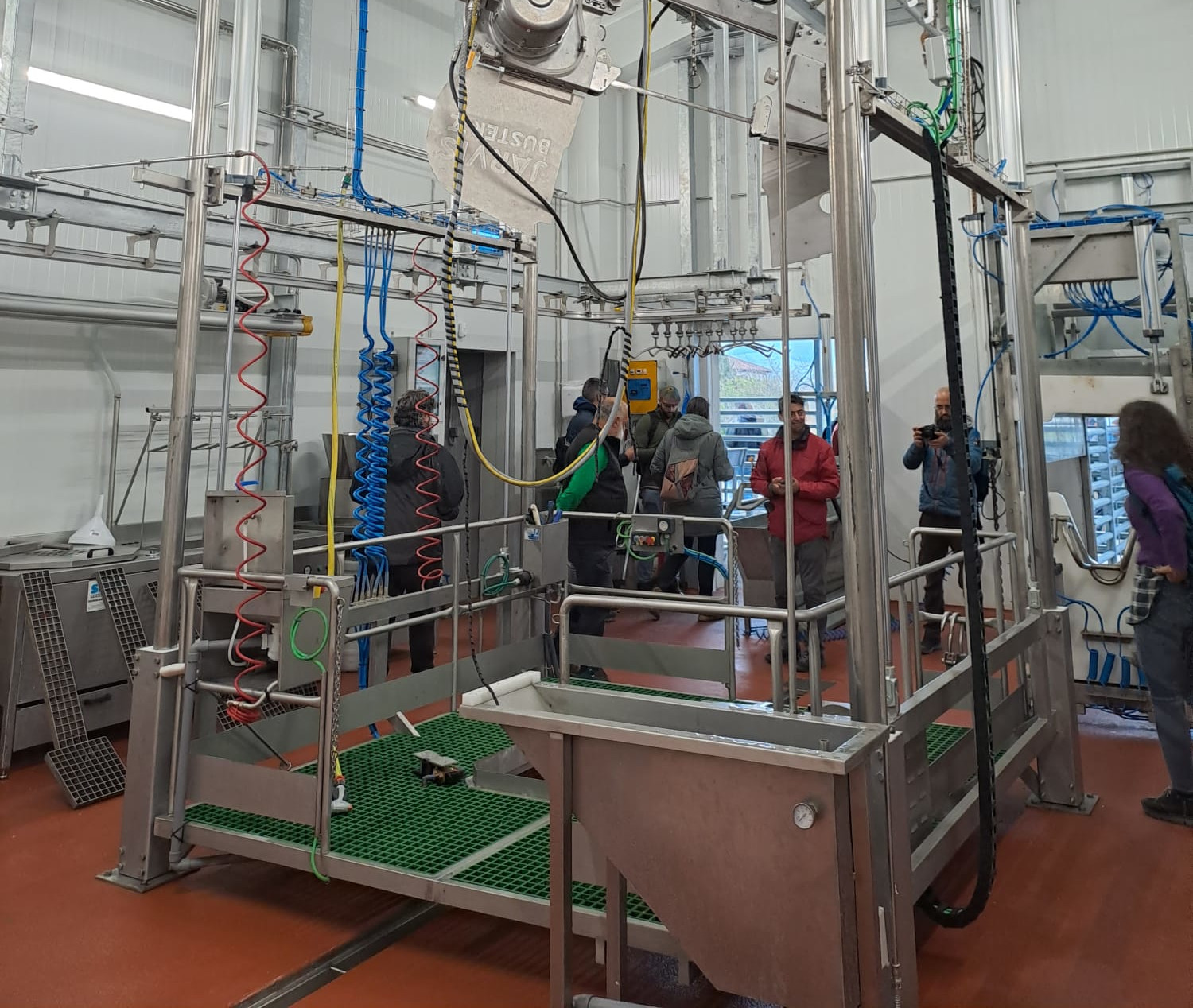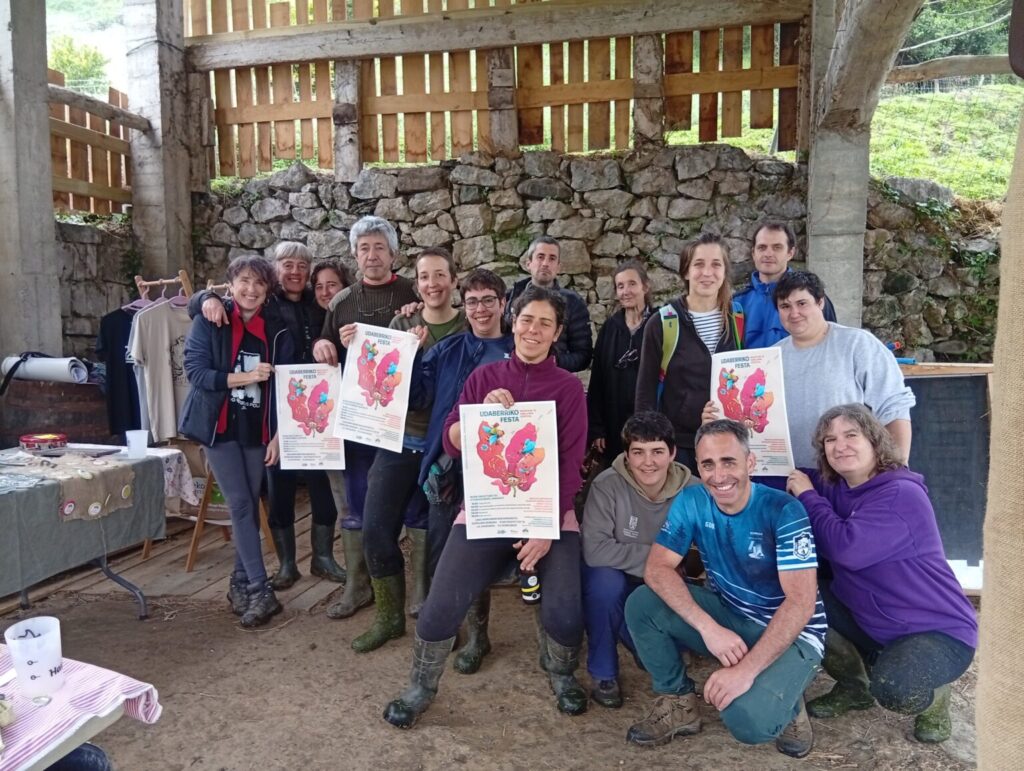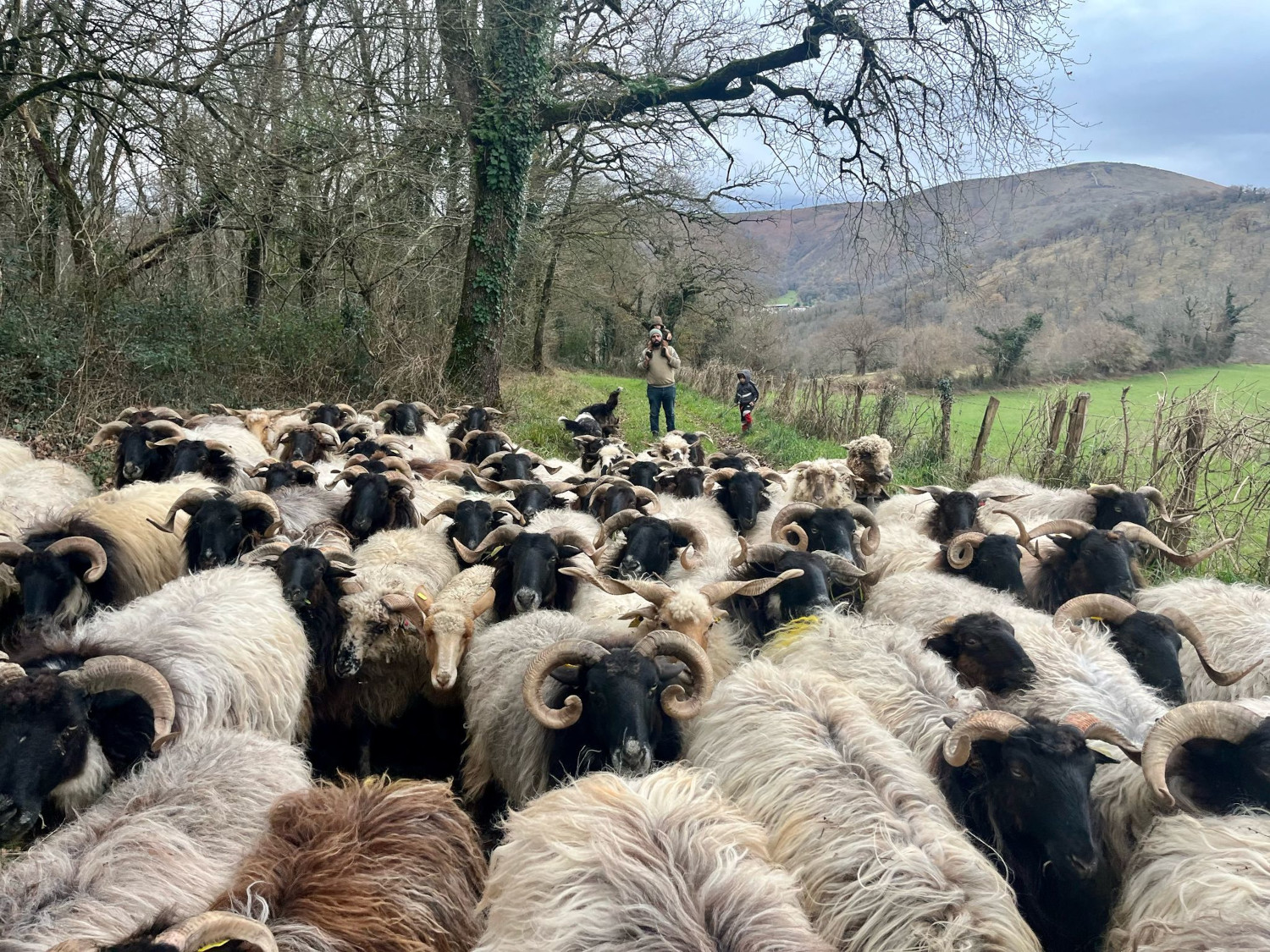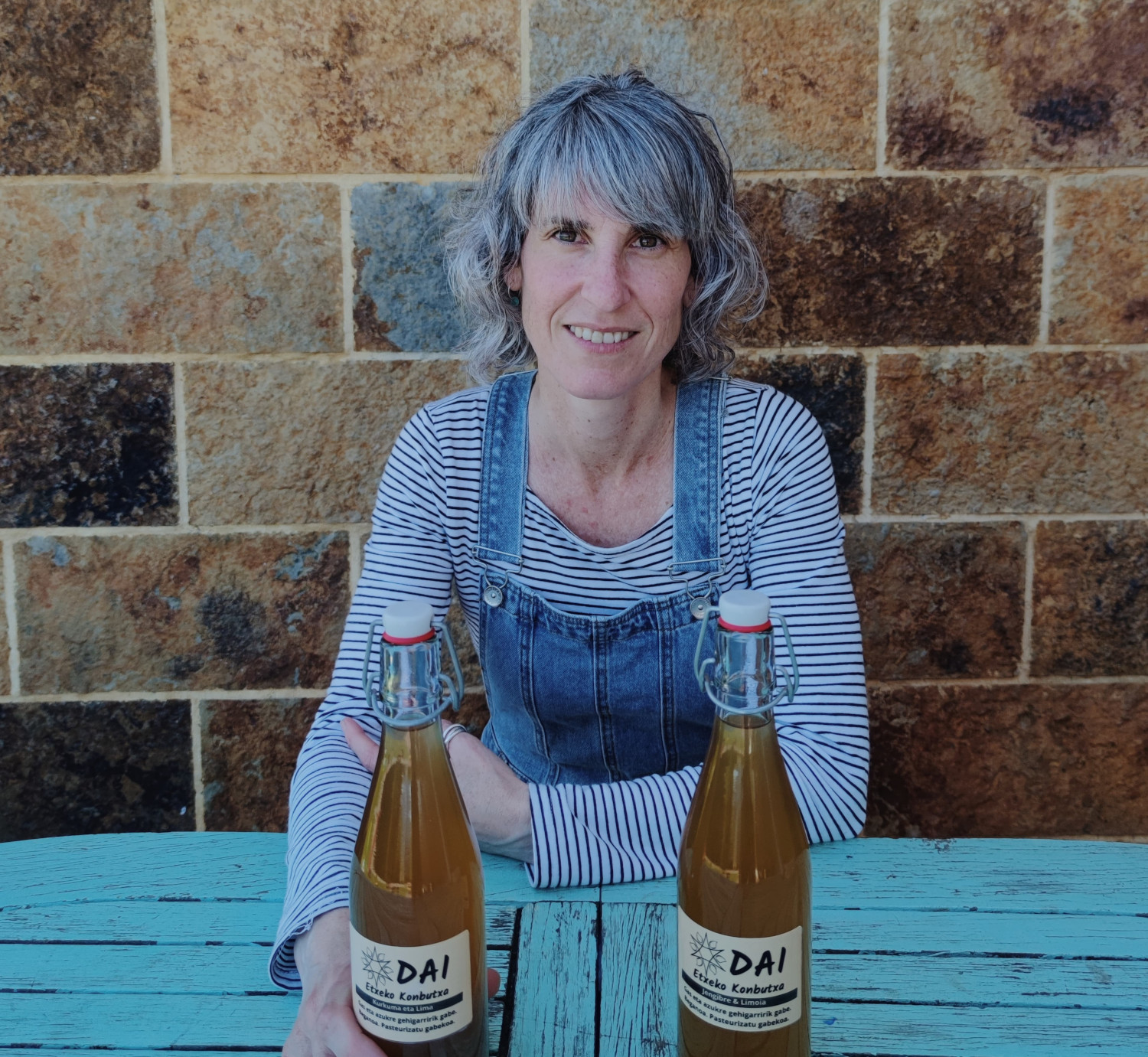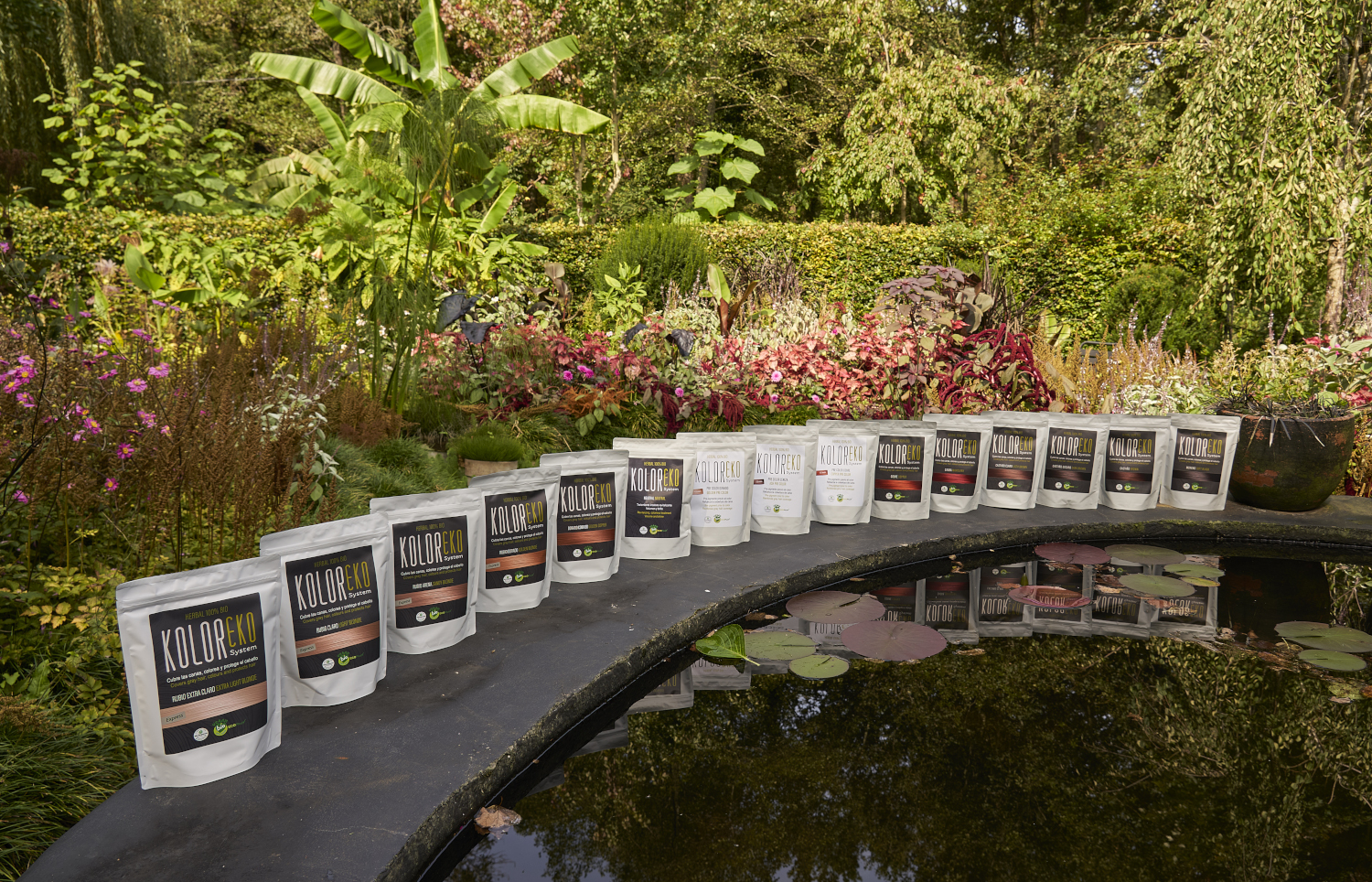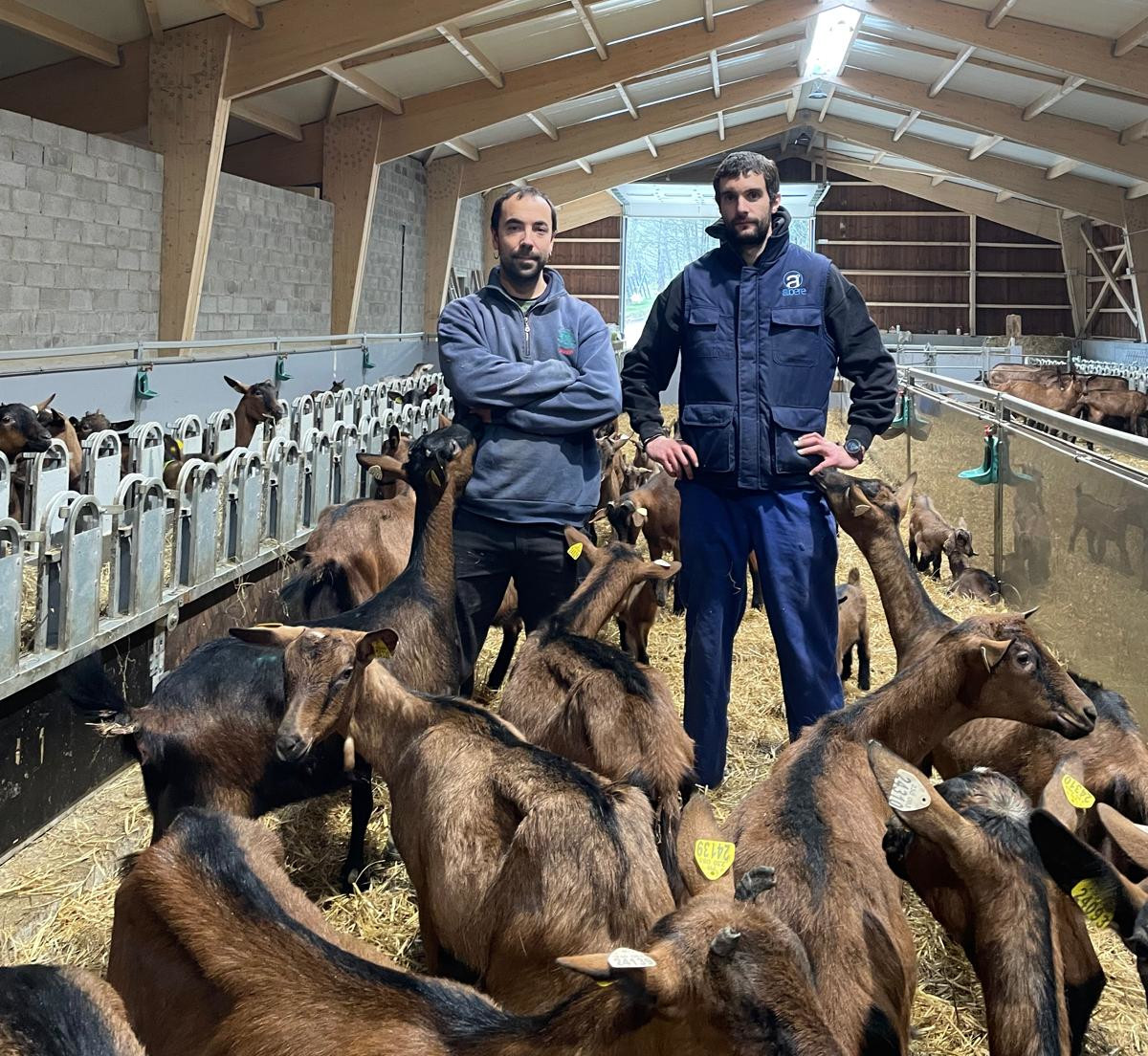Building a local power system in the Sangüesa area
- Why does everyone go shopping to Pamplona if there is a lot of food in our region? Why is it so difficult to find the products of these valleys in the shops of these valleys?” these and other questions began working in the Sangüesa area a few years ago by the agents and people who have turned food, sustainability and development around. The Jakiak Ehuntzen project, the food production and marketing network of the Merindad de Sangüesa, has been launched with the impetus of the rural development association Cederna Garalur.

The main objectives of the project are to provide citizens with access to food and products in the region and, at the same time, to offer new marketing routes to the nearest producers. In this sense, they also organize initiatives aimed at raising consumer awareness and relate to marketing centres for local products such as small commerce, hospitality, tourist areas… “The Merindad de Sangüesa is composed of three districts: Pyrenees, Prepyrenees and Sangüesa. There are 57 villages, but we are barely 22,000 citizens,” explains Tania Gómez Rodrigo, a project technique.
The region occupies about a quarter of the territory of Navarre, and the technician has pointed out that there is a wide variety of products in it: “The territory is so wide and very varied from a climate point of view, and the products we can obtain are also very varied”. Although each region has its characteristics, they are all rural and with a high degree of depopulation. “Cattle farming predominates in the pyrenees: dairy, cheeses… In the Sangüesa area we also have vegetables, fruit, wine, oil, cereals and legumes.”
Group distribution and marketing
Jakiak Ehuntzen is a logistics pilot project in which producers in the region have organised themselves for the collective distribution and sale of products. “We have long distances, difficult orography and the intention is to reduce travel and expenses,” he says. In this way, small shops in the region can also buy at the same time, offering a selection of products. Distribution is also carried out through a local cooperative: “It is a service financed, distribution does not cost producers or businesses”. At the moment, it says that being economically profitable is very difficult, but its intention is to gradually add more producers and businesses to the project to achieve economic viability.
The catalogue of the Jakiak Ehuntzen project has had the participation of 26 producers in the region and the collective distribution project has 12. Many of the producers of the project are working on an ecological model, but not all. “At least we have sought to be small producers, not an industrial model. Earth-related producers working extensively.” To contribute to the local economy and guarantee the future of countries at risk of depopulation, Gómez considers that these types of projects are fundamental.
Duela lau urte abiatu zuten Azpeitian Enkarguk proiektua, Udalaren, Urkome Landa Garapen Elkartearen eta Azpeitiako eta Gipuzkoako merkatari txikien elkarteen artean. “Orain proiektua bigarren fasera eraman dugu, eta Azkoitian sortu dugu antzeko egitasmoa, bere izenarekin:... [+]
Donostiako Amara auzoko Izko ileapaindegi ekologikoak 40 urte bete berri ditu. Familia-enpresa txikia da, eta hasieratik izan zuten sortzaileek ile-apainketan erabiltzen ziren produktuekiko kezka. “Erabiltzaileen azalarentzat oso bortzitzak dira produktu gehienak, baina... [+]
Ubidekoak (Bizkaia) dira Imanol Iturriotz eta Aritz Bengoa gazteak. “Lagunak gara txikitatik, eta beti izan dugu buruan abeltzaintza proiektu bat martxan jartzeko ideia”, azaldu du Iturriotzek. Nekazaritzari lotutako ikasketak izan ez arren, baserri munduarekin eta... [+]
Iruñean bizi ziren Iñaki Zoko Lamarka eta Andoni Arizkuren Eseberri gazteak, baina familiaren herriarekin, Otsagabiarekin, lotura estua zuten biek betidanik. “Lehen, asteburuetan eta udan etortzen ginen eta duela urte batzuk bizitzera etorri ginen”, dio... [+]
Gipuzkoako hamaika txokotatik gerturatutako hamarka lagun elkartu ziren otsailaren 23an Amillubiko lehen auzo(p)lanera. Biolur elkarteak bultzatutako proiektu kolektiboa da Amillubi, agroekologian sakontzeko eta Gipuzkoako etorkizuneko elikadura erronkei heltzeko asmoz Zestoako... [+]
Emakume bakoitzaren errelatotik abiatuta, lurrari eta elikadurari buruzko jakituria kolektibizatu eta sukaldeko iruditegia irauli nahi ditu Ziminttere proiektuak, mahai baten bueltan, sukaldean bertan eta elikagaiak eskutan darabiltzaten bitartean.








